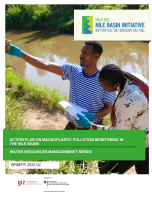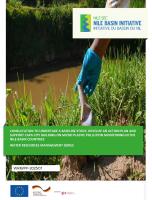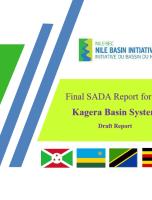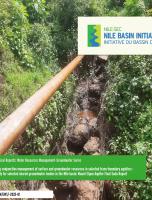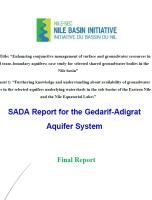Abstract
Wetlands in the Nile Basin are of great importance both economically and environmentally. Many of these wetlands have been degraded or lost due to economic activities, urban developments and poor wetland management. In recent years however, a movement has started to stop this trend and find a balance between wetland use and wetland protection. It has required the mobilization of state and non-state actors for a collective and coordinated collaboration to drive the complex process of securing the transboundary wetlands and wetlands of regional significance in the Nile Basin. To achieve this, the riparian countries, through the Nile Basin Initiative, have created a common framework for the coordinated management of these wetlands.
Recently, baseline studies of various aspects related to the wetlands in the Nile Basin have been concluded, which can now serve as a reference point for wetland management (See Nile Basin Wetlands Inventory). It highlights the most important aspects of the Nile Basin wetlands that requires detailed attention. It is mostly concerned with the biophysical characteristics and governance aspects of the wetlands. Now that baseline information is known, observations can be made on a regular basis through a monitoring program to capture any changes that may occur, which creates a mechanism for pro-active remedial action to be launched where and when required. To compare the status quo with the baseline, it is required to conduct monitoring and assessments of targeted data over a certain time period.
Monitoring is the systematic observation and recording of current and changing conditions, while assessment is the use of that data to evaluate the conditions, which ultimately supports decision-making and planning processes. Well-designed and executed wetland monitoring and assessment programs are a critical tool to better manage and protect wetland resources. Monitoring can thus inform wetland management strategy and in this way strengthen the capacity of riparian states to manage their wetlands more effectively.
The implementation of a monitoring program will require the participation and commitment of a wide range of actors on local, national and regional scale. It must be emphasised that monitoring does not automatically require sophisticated technology or high investment and can be carried out at different levels of intensity.There are many different monitoring techniques available and each country should select the technique(s) most appropriate to its priorities and available resources. This monitoring guideline aims to assist with this process by providing appropriate methods and procedures that are replicable to monitor, compile, and analyze basin wide wetland data that can be translated into a mechanism that supports educated decision making. It should also provide a means to determine the effectiveness of already implemented measures and whether or not changes should be made
